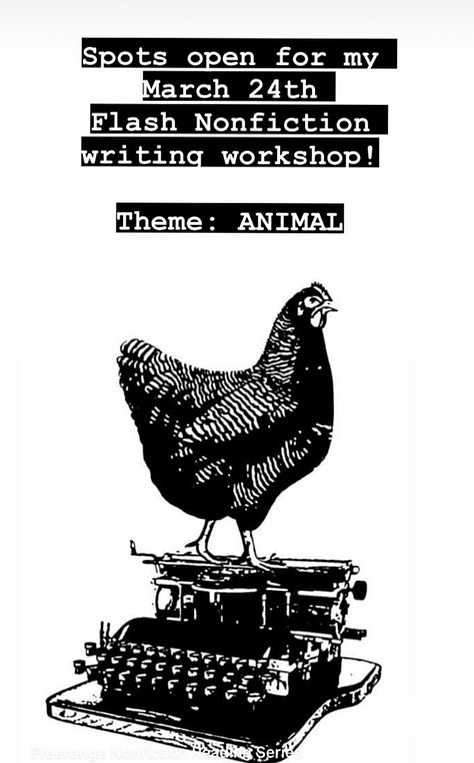Confession time: How I get in my own way (and eventually, out of it) in fiction writing
I hate that my characters have to change which is why I never make them change until my agent yells at me
In mid February, I got feedback from my agent on a new novel I handed in. I’ve been working on this book for quite a while, and for me, the version I handed in was absolutely shipshape. I thought I’d have a few weeks of revision based on whatever my agent’s comments were and then we’d be submission ready—ready for the big time, just a month or two away from me being able to blushingly share my PW book deal announcement on my social media. This was wishful thinking, as it has turned out.
The novel that I handed in has been kicking my ass for a long time. It’s a story told in two perspectives, the husband and the wife’s. I got the husband’s voice, character and backstory down more or less from the jump, because I’ve always been more comfortable writing in the voice of men. Historically, adult women characters are unnervingly hard for me to write. It’s uncomfortable for me to fictionalize my women characters away from what I myself have experienced, how I myself have been parented, my own experiences within female friendships, so and and so forth. Because I’m not a man, it’s an immense pleasure to imagine their lives and viewpoints and to fictionalize their arcs. With my women characters? Weirdly, it take me years of digging to get past who I am to who these women are.
This was the crux of my agent’s feedback—that I don’t have the wife’s character right yet. My lady character is murky. She’s neither good, nor bad. And while she’s not exactly passive, the place where she is starting from in the narrative is fuzzy and thus the place where she is heading is fuzzy and inscrutable, too. By “place”, I mean her place in life—the emotional, physical and fiscal state we find her in in the beginning of the book.
Unlike many agent/writer collaborations where the agent delivers their feedback electronically, via line edits or notes on the writer’s actual manuscript, my agent and I do nearly everything on the phone. We spent hours discussing the—let’s not call them “problems”— opportunities for improvement in my manuscript.
I took down pages and pages of notes during these calls, but one note that I immediately highlighted with my beloved extra large triangular yellow crayon was the following:
Don’t anticipate problems—have people be positive and confident going into situations.
When my agent said that to me, I cued the Brittney Spears music. Oops. I did it again.
Every single time I try and write a commercial novel, I screw up my first (and second, third, fourth, and fifth) drafts by having my characters arrive jaded from page one.1 They’re already disenchanted with some part of their lives, they have read the writing on the wall numerous times, and the reader has to suffer through an indecent amount of pages until my main character(s) decide(s) to do something about it.
One of the reasons I keep starting off my novels wrong is that:
1) I don’t like thinking of my characters as idiots—of course they’re self aware about whatever shitty thing is going on.
2) As the author, I usually have an idea of where the plot is going so it feels rude and manipulative to pretend that my characters don’t.
I’m not exaggerating. With every single one of my Big Five books, I have botched countless drafts this way.

For years, my novel I AM HAVING SO MUCH FUN HERE WITHOUT YOU started off with the narrator Richard going on and on about what a ball and chain his wife is, but his mistress is kind of a pain in the ass too, and was life going to be this complicated forever, waah waah waah.
It’s embarrassing how long it took me to make the change that would open up the book and make it the kind of story that was complicated and heart breaking. Now, when that novel opens, Richard loves his wife, but he’s in love with his mistress. The problem is, his mistress doesn’t love him any longer and in fact dumps him for someone else, so now Richard has to try and win his own wife back.
I had somewhere to go, suddenly, with the story I was writing when I made these changes and had Richard start out confident and full of hubris instead of jaded and exhausted. Plus, with these tweaks in his outlook, Richard Haddon became someone the reader could root for—even if the reader didn’t like the fact that Richard had been unfaithful to his kick-ass Parisian wife.
In TOUCH, which was an even harder novel to write than my second book (in case nobody has told you this, second books are nearly Biblical tests of stamina and endurance because some level of expectation is set with your first publication that you now need to either correct for or live up to once again) I didn’t land on something useable until my seventh draft. For a full year, that manuscript kicked off with a trend forecaster who already knew exactly what was around the bend in terms of trends: she knew that physical touch was going extinct, that people were going to start moving away from reproduction and even from recreational sex, she knew that she was in a relationship with the wrong person and she shared all this information with the reader in the first pages of the book during a transatlantic plane ride.
Great, so what was the point of writing anything else? Ugh! It should have been so obvious since I’d already made this “starting off with jaded characters” misstep before, but nope! I wrote hundreds and thousands of words and drafts on the foundation of this all-knowing, unchanging character. Ugh!
In the book I’m working on relentlessly right now, which I’m just going to call BOOK, you would think that I would have identified this habit, and got out of my own way, and stopped making that mistake. But no! I’ve done it again! And I did it to both characters! My male character already wants out of the career that he’s a big wig in and the wife is dissatisfied and gloomy and uncertain why…UGH, who wants to read that? Who wants to write that, even?
It’s not going to be too hard to fix my leading man— he has the first three opening chapters and he does change after that, so I just need to revise his pages to have him start from King of the World mode instead of Fallen/Tired King mode, which won’t be too hard.
But the revision of my leading lady is going to necessitate an entire overhaul. So much so that in the vision board I made for this project that I use as my computer wallpaper, I’ve recast her. Formerly, my main lady character was Melissa McCarthy. Now, she’s Juliette Lewis. (Yes, I pre-cast the roles for all the commercial novels that I’m writing, do you not? In addition to being a rewarding form of procrastination, it also motivates me to connect with my made-up characters as people and to work toward a goal beyond getting the damn thing finished, including getting the damn thing published and possibly optioned for film.)
Turning my wimpy, unsure wife into the ballbuster that I agree with my agent that the narrative necessitates is going to take me all spring, if it doesn’t give me a nervous breakdown first. I’m not using this nervous breakdown language lightly— for the last two weeks, I have been totally immobilized by my agent’s feedback. Totally unsure how to fix it, and starting to wonder if I even want to fix it, if I have the stamina for yet another overhaul of this freaking project. A lack of forward motion is poisonous to me, and these last two weeks have been unraveling, but you know what? Time is what I needed to digest the unpleasant information that rather than being submission-ready, my novel needs a shit ton of more work. I did not like to hear that. I do not like that I have months and months, instead of weeks, ahead of me which will involve incredibly hard revisions that I thought I’d already done.
It’s the pits. This writing and revising thing is honestly so hard. Will I learn now? Will I start off my next commercial novel from a place of confidence and positivity so that my characters can have their worlds upended and their viewpoints changed?
I don't know— someone remind me to do that from the get-go please the next time that I start something. You’ll save me many years!
What about you? Do you have any reoccurring habits that eff up numerous drafts? Please share them in the comments so I don’t feel alone!



One of my favorite authors and people Mira Ptacin is running a flash fiction workshop dedicated to the theme of animals on March 24th. As someone who has a lot of animals and publishes regularly in outlets such as The New York Times and Modern Farmer, Mira is the perfect teacher for this subject, and who doesn’t like writing about animals, especially right now, when humanity’s so botched? Visit Mira’s Instagram for information on how to sign up.
Tomorrow I’m appearing with another author friend Chloe Caldwell on Scrappy, How to Build an Alternative Literary Life through the literary magazine “Off Assignment.” The lecture series is running through mid March. Chloe published like five books without an agent until I forced her to work with mine, so our discussion is sure to be a lively one!
Registration is open for the next masterclass in my Turning Points series, “Getting Platform Right: Social media, networking and newsletters, your way.” Thank you so much to the wonderful people who joined us last Wednesday for the first class in this series on Time Management. I was so grateful to have you there and I think we all learned a lot and felt a lot of feelings. Paid subscribers can get a discount to the next Turning Point course. The discount code will come right after the PayWall. You can upgrade your subscription to access this code if you would like.
Thanks for being here and have a great weekend!
Courtney


